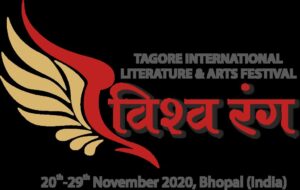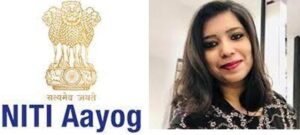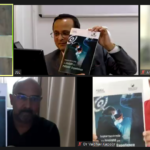The Post-COVID World: Future of Healthcare – a discussion on at Vishwarang 2020 highlights critical points about reforming the healthcare sector of India.


Bhopal, November 30, 2020: The second edition of the Tagore International Literature & Arts Festival ‘Vishwarang’, which was held online due to the COVID-19 pandemic, has brought into focus a series of issues of current relevance. One such topic is ‘The Post-COVID World: Future of Healthcare’, which was discussed at length in a session and highlighted various critical points regarding the healthcare system of India and the need to revamp it for the welfare of the people, as the healthcare industry will witness a further boom post-COVID.
The speaker of this session was Dr Urvashi Prasad, who is the Public Policy Specialist at NitiAyog. The session was moderated by Mr Ronald Fernandez (CEO, Atal Incubation Center, Rabindranath Tagore University Bhopal).
Speaking about the lessons learnt from the pandemic and how the healthcare system should shape up in the country,Dr Prasad said, “One of the most important learning’s has been that we need to emphasize on public health, health promotion and prevention as much more than curative care or hospital-based care. The best example for this is from a country like the United States. They spend a lot of money on healthcare; nearly 17% of their GDP goes in healthcare, but a lot of it goes into hospital-based care. That is where we need to follow a different path.”
“We need to invest in public health and in prevention because we have many more people and we can see the kind of crisis they are facing today with respect to this pandemic. So, we need to go back to the basics and look at our traditional systems, which promote healthy living and well-being. In India we have a long tradition of Ayurveda and Yoga, the essence of which is to keep disease at bay. So when we look at investing in health, of course we need to increase our investment but it is also important to see what areas we invest in. Those areas have to be public and preventive health as well as promotion of Ayush.”
Various other critical points regarding the relevance of technology in the healthcare system were discussed. Dr Urvashi Prasad said, “We have seen greater adoption of technology across various sectors and healthcare is one of them. Especially during the lockdown period, we saw a massive increase in the adoption of telemedicine. Many more people have now started availing health services and consultations through telemedicine platforms. There is so much more we can do with technology in the health sector, especially in collaboration with the private sector. Recently,the NitiAyog has released a compendium of practices that States and Union Territories have adopted in fighting COVID.


“A number of these practices actually involve some wonderful innovations by startups: right from the use of Robotics, to minimize the exposure of infections to healthcare workers to use of variety of telemedicine applications, to monitoring patients in home quarantine, we have seen a whole host of innovations. We need to take these forward in the post-COVID era as well because we have a huge shortage of health personnel on one side and on the other side we have a huge population to cater to, including rural and remote areas.”
Another major point about healthcare investment during the pandemic was put forward in the discussion. Dr Urvashi Prasad said, “We need to invest in human resources. The Government has taken several steps to bring about changes in medical education and in Ayush education. We are also looking at nursing now, so we really need to build a strong cadre of medical professionals that goes beyond doctors. Of course doctors have a critical role to play but so do nurses and so do Ayush practitioners.
In fact, a lot of these practitioners provide very critical services in remote and rural areas, where you might not find MBBS doctors or specialists. So we must value, develop and nurture these cadres. We need to give them proper skill sets, incentives and career paths. This pandemic has taught us that the Government alone can’t manage a crisis like this. It needs to be a cross sectoral effort involving civil society organizations, private sectors, startups and larger private sector organizations.”
Talking about Ayurveda and Yoga post-COVID, Dr Prasad said, “We want to invest very strongly in research in the field of Ayurveda and Yoga so that we get high quality evidence and forever put an end to this debate: “Is Ayurveda effective? What is it effective for?” We are now going to focus on education and research in these areas, building a strong evidence base and also try to break down these barriers between modern medicines, Ayurveda and Yoga because ultimately a lot of our traditional systems are about being healthy and staying well.”
Organized by Bhopal-based Rabindranath Tagore University (RNTU), in collaboration with the Tagore International Centre for Arts and Culture Bhopal and the AISECT Group of Universities, Vishwarang 2020 aimed to promote Indian literature, art and culture on a global scale via discussions, discourse and more. Other than the session on ‘The Post-COVID World: Future ofHealthcare’, Vishwarang 2020 hosted 72 online sessions over 10 days from 20th to 29th November on topics such as ‘The Post-COVID World: Future of Arts & Culture’, ‘The Post-COVID World: Future of Entrepreneurship’, ‘Women in Indian Arts’, ‘Contemporary Concerns in World Literature’ and many more.













